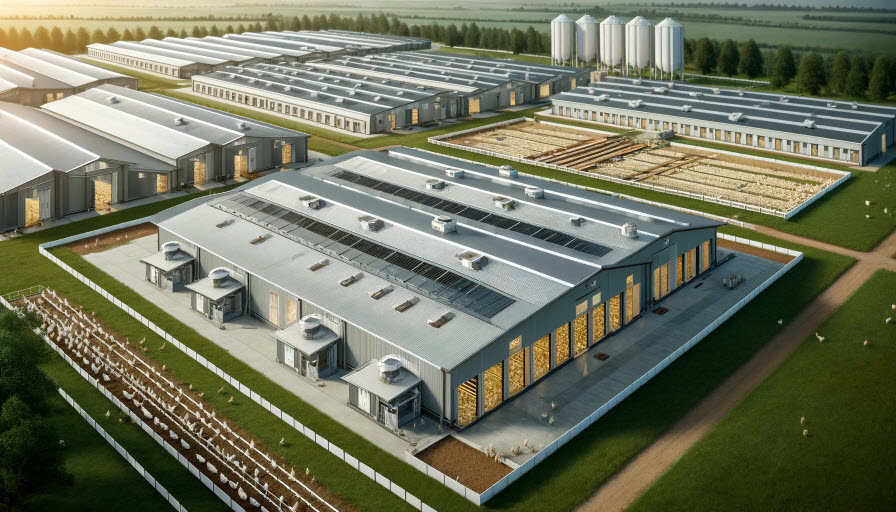How Prefabricated Poultry Farms Offer Solutions
Prefabricated poultry farms are an innovative approach that addresses many of these challenges. These structures are built using modern materials and techniques, providing numerous advantages over traditional construction methods.
1. Protection Against Environmental Challenges
One of the most significant benefits of prefabricated poultry farms is their ability to provide superior protection from harsh environmental conditions. These structures are designed to regulate temperature and provide optimal ventilation, which is crucial in hot climates like Uganda and South Sudan. Prefabricated poultry farm shades, for example, are built with materials that offer excellent insulation, protecting birds from extreme heat while ensuring proper airflow.
Additionally, prefab poultry farms are constructed in a controlled environment, which ensures that the buildings meet high-quality standards. This results in stronger, more durable structures that can withstand harsh weather conditions, such as heavy rain and wind, keeping the birds safe and comfortable.
2. Enhanced Disease Control
Disease outbreaks are a persistent threat in poultry farming, but prefabricated buildings offer several features that make biosecurity easier to manage. These buildings are often designed with specific biosecurity measures in mind, including sealed floors, smooth surfaces for easy cleaning, and controlled ventilation systems that help prevent airborne diseases from spreading.
In prefabricated environments, it’s easier to maintain cleanliness and hygiene, which is critical in reducing the risk of disease transmission. Moreover, the use of durable materials like steel and plastic in prefab poultry farms reduces the presence of pests, rodents, and other disease carriers that can enter through poorly constructed gaps in traditional sheds.
3. Mitigating Climate Variability
Climate variability is another pressing issue that prefabricated poultry farms can help address. With advanced climate control systems, these buildings allow farmers to maintain consistent temperatures, humidity levels, and ventilation regardless of external weather conditions. This not only helps reduce heat stress in birds but also optimizes their productivity, particularly in egg-laying and growth rates.
Many prefabricated farms come with automated systems that allow farmers to adjust the internal environment easily. For example, prefabricated environmental poultry control systems can monitor temperature, humidity, and light, adjusting them as needed to create the ideal conditions for poultry growth.







